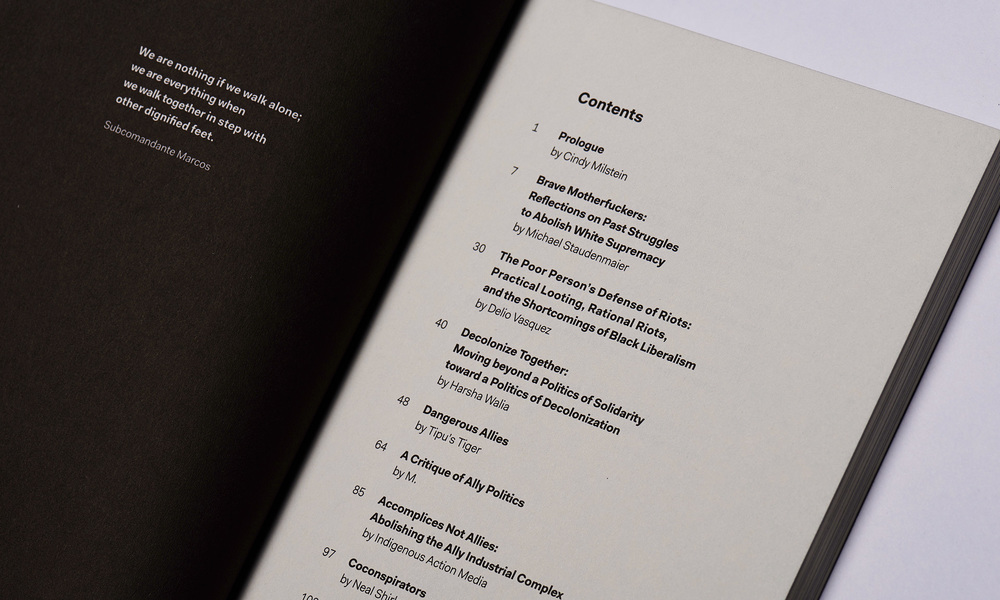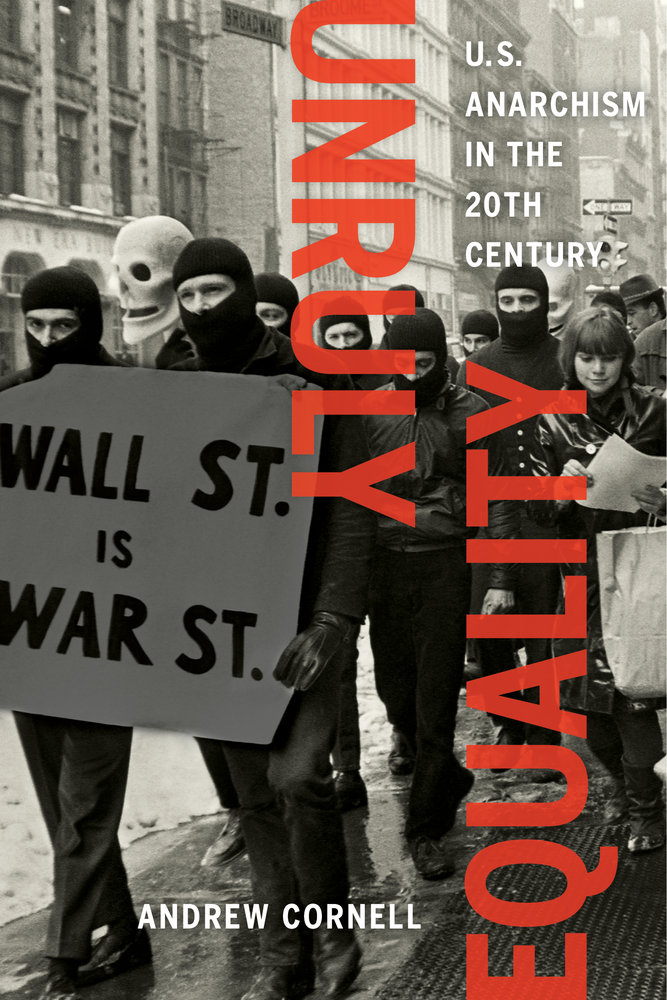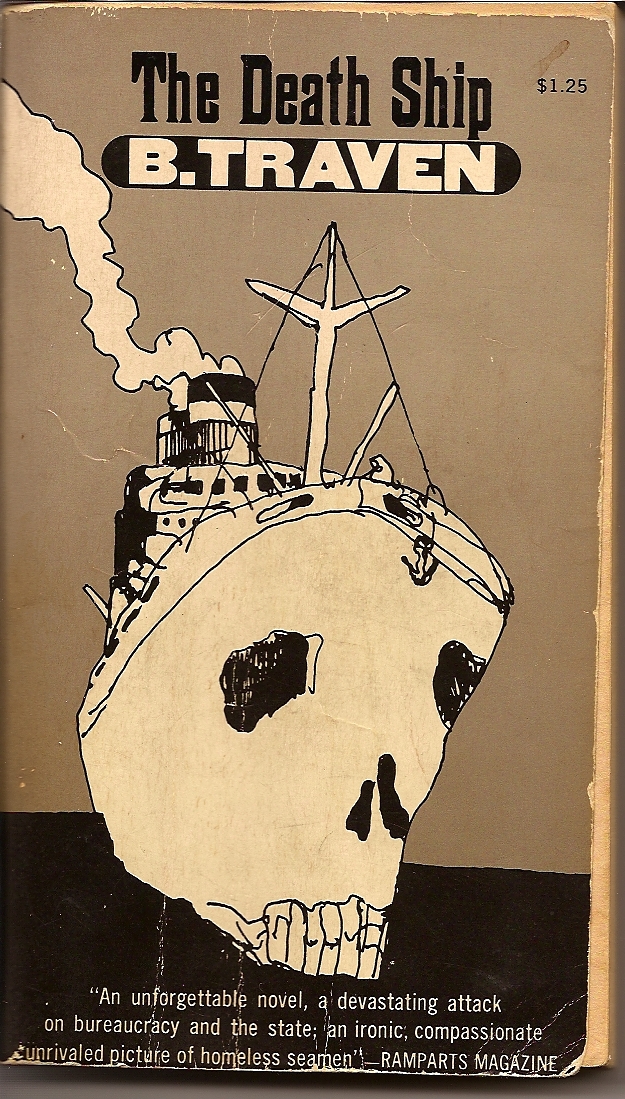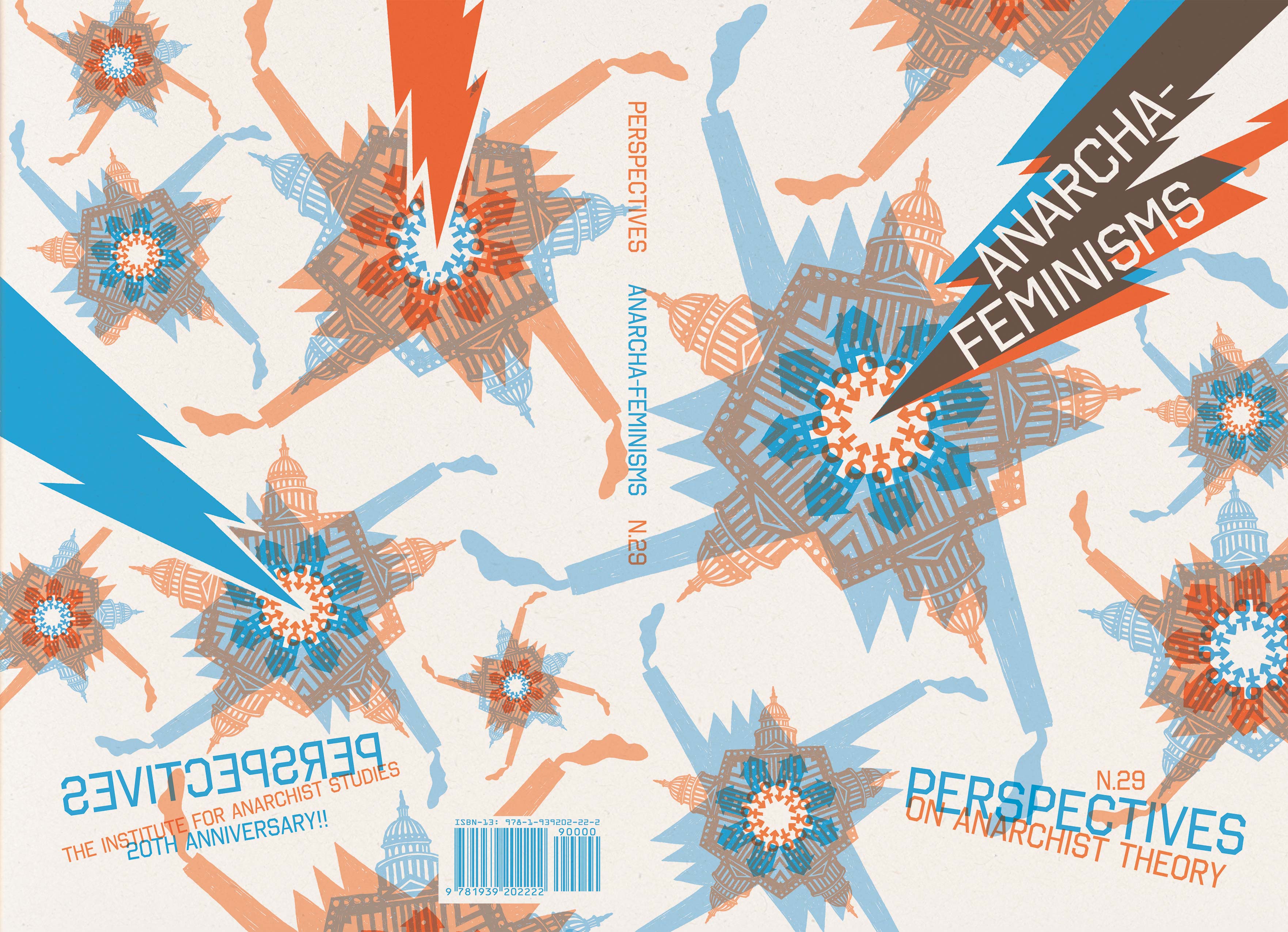Here is a response to Arun Gupta’s review of Taking Sides. It is written by Michael Staudenmaier, author of Truth and Revolution: A History of the Sojourner Truth Organization, 1969–1986 (AK Press, 2012). Michael wrote an original essay, “Brave Motherfuckers: Reflections on Past Struggles to Abolish White Supremacy” that opens and introduces Taking Sides: Revolutionary Solidarity and the Poverty of Liberalism (AK Press, 2015). This is the type of discussion we were hoping would be generated by Arun Gupta’s review. We encourage you to continue the discussion in the comments section. Perspectives Eds.
Early on in Arun Gupta’s review of Taking Sides, “A War of All Against All,” which appeared here in Perspectives, he writes, “The exact purpose of the book is hard to glean, other than gushing white-hot rage.” Replace “book” with “review” and you have an apt description of his essay. It is clear that Taking Sides made Gupta angry, but it is not at all clear why. Nor does he offer much of an alternative framing for a set of issues he acknowledges are important.

Publishing
PLAY: A Call for Submissions for the Next Issue of Perspectives
Are you an organizer or activist currently engaged in movement work? Are you interested in taking time to reflect on the lessons and ideals of this work in order to help advance anarchist praxis? Are you a self-taught thinker with a particular interest or expertise in some aspect of radical history or practice? Are you willing to share your insights to contribute to our collective memory? Do you have ideas, experiences, or questions that you would like to develop and share with a wider audience?

If you answered “yes” to any of these questions, the Perspectives on Anarchist Theory editorial collective would like to hear from you. We believe it is crucial that those of us with visions of a free society share our work and ideas so that we can create a solid, common foundation on which to build a better world. We value underrepresented voices, accessibility, complexity, and the rigorous investigation of ideas.
A War of All Against All: A Review of Taking Sides: Revolutionary Solidarity and the Poverty of Liberalism, Cindy Milstein, ed. (Oakland: AK Press, 2015), by Arun Gupta
In the introduction to the book Taking Sides, the editor extends “an invitation to constructively debate the many thorny questions for which none of us have the answers.” In that spirit, and viewing our publication as a forum for vigorous and open debate, Perspectives presents the following review, and has specifically invited the book’s editor to respond in our pages. We also encourage you to join the discussion. We want to host debate and constructive engagement with the important issues that Taking Sides raises in our comments section. You can participate by leaving a reply at the bottom of the review. – Eds.
It was in a dusty lot in a residential corner of Albuquerque, New Mexico where Amalia’s story came spilling out.1 “This is the earliest memory of my mother,” she said, her eyes locked on a row of greens pushing through sandy soil under an open-faced hoop house. “I was less than two years old. She was picking a row of beets.” The last of ten children of Mexican and indigenous heritage in a family of farmworkers, Amalia says her mother was diagnosed with late-stage cancer while pregnant and given a few years to live.
“We were very poor and my mother felt I wouldn’t survive as a baby. My father worked constantly to feed our family and buy shoes for us once a year. My mother was friends with a white woman in a Jehovah’s Witness church who was married but couldn’t have children.” After her mother died the white couple adopted Amalia when she was still a toddler. “Right away they took me to a doctor because I was malnourished.”
“Then the woman who adopted me, a gracious and wonderful woman, was killed two years later in a car accident. So I lost my mom again.” Her adoptive father, Jack, became her primary caretaker. “He encouraged me as a woman to not let things limit me. He encouraged me to embrace my culture. He made relations with indigenous people in the area so he could take me to ceremonies. He really loved me.”
From Oblivion to Political Responsibility: An Anarchist Sister Reviews Dear Sister: Letters from Survivors of Sexual Violence (AK Press, 2014), reviewed by Sara Rahnoma-Galindo
This review appears in the new issue of Perspectives on Anarchist Theory, N.29, on the theme of anarcha-feminisms. It is available from AK Press here!
Radicals, including many anarchists, are involved in actively organizing against gender and sexual violence around the world. For example, Operation Anti-Sexual Harassment/Assault in Egypt; Las Kallejeras in the shantytowns of Santiago, Chile; the Colectiva de Gafas Violetas in Mexico; and countless other local initiatives all confront perpetrators in workplaces and organizing work. Yet, the task of addressing sexual violence, even in anarchist circles, continues to be singled out as primarily the job of survivors and their most immediate circles, instead of as a collective political responsibility. As an issue that we are socialized to meet with silence and stigmatization, sexual violence is commonly underemphasized or obscured amongst both radicals and society at large. Take for instance, ignorance of the fact that one out of three women in the world will be raped at some point in their lives. Or that, in the US, ninety-one percent of reported rape survivors are women, the most vulnerable being queer and gender nonconforming youth and people with physical disabilities, and fifteen percent of children are survivors of rape and incest. It is critical that our politics be aware of and address this. We need to be more diligent and active in both understanding sexual violence and linking it to radical organizing.

Consider reading Dear Sister: Letters from Survivors of Sexual Violence (AK Press, 2014), an anthology containing fifty insightful pieces, written by survivors from all walks of life, as part of this process. The book features an introduction by African-American incest and rape survivor and filmmaker Aishah Shahidah Simmons, and is edited by Philipina-American feminist author and survivor advocate Lisa Factora-Borchers. Known for having extensive involvement with survivors via coalition work, nonprofits, and institutions of higher education before piecing together Dear Sister, Lisa Factora-Borchers was first approached by Black feminist author Alexis Pauline Gumbs who asked her to write a letter of support to a friend who had just been raped. Not knowing the survivor’s situation, her name, or much else about her, Lisa Factora-Borchers nevertheless acknowledge the situation and communicated support. Hence the idea for the book was born.
Anarchism's Mid-Century Turn: A Review and Response to Unruly Equality: U.S. Anarchism in the Twentieth Century, by Andrew Cornell (University of California Press, 2016) by Kristian Williams
Part One
Transitions
No matter how one feels about it, the current state of anarchism has represented something of a mystery: What was once a mass movement based mainly in working class immigrant communities is now an archipelago of subcultural scenes inhabited largely by disaffected young people from the white middle class.

Andrew Cornell’s Unruly Equality: U.S. Anarchism in the Twentieth Century supplies the first convincing account of that transition. Beginning in 1916, just before the Red Scare, and closing in 1972, just as our present movement was taking shape, the book serves as “a prehistory of contemporary anarchism.” Giving particular attention to the middle decades when anarchism seemed to disappear, Cornell uncovers a missing history and finds “a clear line of continuity rather than a defined break.” The line he traces is continuous, but it is not straight. There may not be a gap, but there was most certainly a turn.
Coming of Age: A Review of Unruly Equality: U.S. Anarchism in the Twentieth Century, by Andrew Cornell (University of California Press, 2016), by Jeremy Louzao
I was 15, living in a suburban middle-class part of Anchorage, Alaska, when the subversive package arrived—my first committed step on the anarchist path.
It was the winter of 1996, and maybe just six months before, some anecdotes from a beloved radical teacher got me curious about a thing called anarchism. Soon enough, I was doodling circle-As in the margins of my notebooks. Then I was trying, through brute force, to make my way through Howard Zinn and Noam Chomsky. Then—oh, the most cliché gateway into anarchism for kids of my demographic—I found punk rock. And there, in the insert of one of my first punk albums, I learned about AK Press. Brandishing a 56k modem, a phone, and a few hundred dollars that I got once a year from Alaska’s strange, oil-based dividend checks, I ordered a load of literature and odds and ends: Anarchy by Errico Malatesta. Living My Life by Emma Goldman, The Ecology of Freedom by Murray Bookchin, something about participatory economics by Michael Albert; Situationist pamphlets and grassroots organizing manuals; tiny punkish pins and a slew of garish t-shirts crammed with ironic faux-corporate logos, stenciled fists, and slogans in block letters. I’ll admit that, for a little while, I just basked in my new consumer identity as an anarchist. Then I actually read the stuff and, Wow, I really was an anarchist! From that cacophonous, often inscrutable, mix of texts, I found a personal worldview, ethics, even a spirituality that came to guide the course of my life.
Re-evaluating B. Traven, by John Z. Komurki
The novelist, short story writer, fantasist, and revolutionary B. Traven has been called “the greatest literary mystery of [the Twentieth] century.”[1] “My life story would not disappoint,” Traven himself says in an essay on his breakthrough novel Das Totenschiff (The Death Ship), published in 1926; nevertheless, the author chose to divulge almost nothing beyond scattered, putatively autobiographical references in his novels.

Traven is a pseudonym. The writer’s real name, nationality, date and place of birth, as well as many other biographical details, remain disputed. That is, in part, why he is commonly referred to (adapting the title of one of his collections) as “the man nobody knows.” More, perhaps, than his writing, it is this carefully cultivated mystery, this series of increasingly elaborate smokescreens, ruses and double bluffs, for which B. Traven is most famous today.
Support Radical Writing and Publishing!
If you missed your opportunity to support radical writers and publishing during our recent fundraising campaign, there’s still time to make a donation. The Institute for Anarchist Studies is about to publish issue N. 29 of Perspectives on Anarchist Theory on the theme of Anarcha-Feminisms, in … Read more


